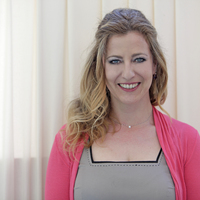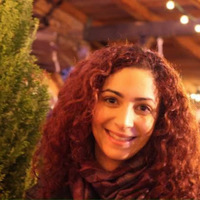Judith Townend
Lecturer in media and information law at the University of Sussex (School of Law, Politics and Sociology) and associate research fellow, Institute of Advanced Legal Studies, University of London.
less
Related Authors
Oreste Pollicino
Università Bocconi
PATSY CIARDULLO
American University Washington College of Law
Uta Kohl
University of Southampton
Elizabeth Englezos
Griffith Universtiy
Elaine Fahey
City, University of London
Elena Perotti
Università degli Studi di Torino
Laura Puccio
Université libre de Bruxelles
Shara Monteleone
University of Groningen
barbara needham
City, University of London
InterestsView All (22)









Uploads
Papers by Judith Townend
*It is legitimate to restrict information in the interest of national security, but only where this is strictly necessary and when safeguards exist to maintain open justice and freedom of expression
*The British experience of security censorship during the Second World War provides a compelling case study of information control in an otherwise open society that should be used to inform future policy
*The self-regulated system adopted during the Second World War ensured considerable press freedom, but was hindered by a lack of planning and poor co-ordination between the press and competing authorities
*The Second World War case study suggests that information control procedures will always be contentious but that they can be made more successful through careful planning and co-ordination, the involvement of a broad range of representatives, and an awareness of the public interest in imparting and receiving information
*Both the historic and contemporary case studies indicate that information control in an open society will rely upon a degree of self-regulation and require clear guidelines, co-operation, and opportunities for dialogue
and commercial interests. Together they form an explanation for the press’s collective redaction of developments in the phone hacking story until July 2011. We demonstrate, therefore, that the vigour of journalism and healthy democratic debate is not merely dependent on the effective regulation of what is reported, it is also dependent on ensuring that harmful illegal activity is regarded as sufficiently ‘newsworthy’ to be investigated and reported.
*It is legitimate to restrict information in the interest of national security, but only where this is strictly necessary and when safeguards exist to maintain open justice and freedom of expression
*The British experience of security censorship during the Second World War provides a compelling case study of information control in an otherwise open society that should be used to inform future policy
*The self-regulated system adopted during the Second World War ensured considerable press freedom, but was hindered by a lack of planning and poor co-ordination between the press and competing authorities
*The Second World War case study suggests that information control procedures will always be contentious but that they can be made more successful through careful planning and co-ordination, the involvement of a broad range of representatives, and an awareness of the public interest in imparting and receiving information
*Both the historic and contemporary case studies indicate that information control in an open society will rely upon a degree of self-regulation and require clear guidelines, co-operation, and opportunities for dialogue
and commercial interests. Together they form an explanation for the press’s collective redaction of developments in the phone hacking story until July 2011. We demonstrate, therefore, that the vigour of journalism and healthy democratic debate is not merely dependent on the effective regulation of what is reported, it is also dependent on ensuring that harmful illegal activity is regarded as sufficiently ‘newsworthy’ to be investigated and reported.
The chilling effect is not an esoteric legal metaphor: journalists and campaign groups cite it frequently. It can, but does not have to mean, an outright obstruction of human rights relating to speech. ‘Chilling’ does not necessarily mean to make ice cold; the metaphorical suggestion of temperature suggests a scale of deterrence from cool to freezing. The chilling effect is used to describe overt censorship such as a government banning publication of a book, as well as more subtle controls such as ambiguous legislation and high legal costs that provoke uncertainty and fear among writers and journalists.
The judiciary has played an important role in the popularisation of this highly flexible metaphor. Since the mid-1950s judges – first in the United States but now all over the world - have used it to explain decisions relating to individuals’ and organisations’ right to freedom of expression. Despite its global prevalence, there has been very little interrogation of what it actually means and the rare attempts to systematically document the chilling effect of statutes and judicial decisions on freedom of expression are stymied by a lack of reliable and available data.
With a focus on the chilling effect’s origins in the US and the jurisdiction of England and Wales, this chapter first traces the historical roots of the ‘chilling effect’ concept in relation to human rights, and in particular, laws of defamation and privacy, and the areas of freedom of information and state surveillance. It then considers the difference between its judicial and social use within and between these distinct areas of law. Second, it turns to the question of measurement, examining attempts to systematically document the chill. Third, it considers the impact of the chilling effect metaphor on communication law and policymaking and argues that in order to better protect fundamental human rights, there is a need for clearer articulation by lawmakers of desired boundaries for legitimate speech.
The project is led jointly by the Reuters Institute, University of Oxford, and the Information Society Project, Yale Law School, Yale University.
The project is comparing policies, identifying similarities and differences, assessing how they affect development of startups and existing news companies that would like to be charities and have tax exempt states. It will identify best practices in policy and regulation and challenges that may need to be addressed domestically.